Program Committee
Nick Cr ofts (Chair)
ofts (Chair)
Conference Director and Chair, Program Committee
Professor Nick Crofts is an epidemiologist and public health practitioner who has been working in the fields of HIV/AIDS, illicit drugs, harm reduction and law enforcement for 30 years. His major epidemiological work has been on the control of HIV and hepatitis C among injecting drug users in Australia and globally, including almost every country in Asia. As a designer and technical director of AusAID’s flagship HIV/AIDS program in Asia, ARHP 2002-2007, he was instrumental in building capacity among SE Asian police forces in relation to HIV, and has worked in many settings forging relationships between police and public health. He founded the Law Enforcement and HIV Network (LEAHN) in 2009, convenes the International Working Group on Policing Marginalised Communities, and is Director of the Law Enforcement and Public Health Conferences.
Nick Crofts was previously at the Burnet Institute for Medical Research and Public Health for 19 years, where he was instrumental in building its Public and International Health arms, and was Deputy Director for five years. He was Director of Turning Point Alcohol and Drug Centre for three years, and then at the Nossal Institute for Global Health, developing its Law Enforcement and Public Health Program. His most recent appointment was as Visiting Senior Research Fellow at the UN Interregional Crime and Justice Research Institute in Turin. He has been a member of Australia’s National Council on AIDS three times, and has performed multiple consultancies for WHO, UNAIDS, UNODC, AusAID and other bilateral and multilateral agencies.
He edited the first Manual for Reduction of Drug Related Harm in Asia, founded the Asian Harm Reduction Network, and for his work in Asia was awarded the International Rolleston Award in 1998. He is author of over 150 articles, book chapters and editorials in refereed journals. As well as being technical director for AusAID’s regional HIV program, ARHP, he was technical director of AusAID’s Indonesian harm reduction program. He was principal investigator on an AusAID funded research project in Cambodia, Laos and Vietnam, on the influence of harm reduction on police.
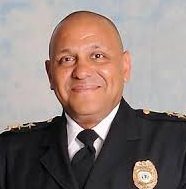 Hassan Aden
Hassan Aden
Chief Operations Officer at the Police Assessment Resource Center (PARC), Seattle
Hassan Aden is the former Chief of Police of the Greenville Police Department in Greenville, North Carolina. Hassan Aden serves as the Chief Operations Officer at the Police Assessment Resource Center (PARC), where he oversees the consent decree monitoring team in Seattle. He also serves on the Cleveland monitoring team managing ongoing projects, technical assistance initiatives and deliverables. Additionally, Hassan is a Senior Adviser at the Vera Institute of Justice (NYC) and the Police Foundation in Washington, D.C. Until late 2015, he was the Director of the Research and Programs Directorate of the International Association of Chiefs of Police (IACP), where he directly oversaw the day-to-day management of operational programs and research projects aimed at advancing professional police services. He served for 26 years at the Alexandria Police Department in Alexandria, Virginia, rising to the rank of Deputy Chief until his retirement in 2012. Chief Aden is a former commissioner of the governing board of CALEA. He currently serves on the National Academies of Sciences, Engineering and Medicine’s Committee on Law and Justice, working with the world’s top criminologists, economists, and other academics on law and justice issues. Among other academic credentials, he holds a Masters of Public Administration from American University in Washington, DC.
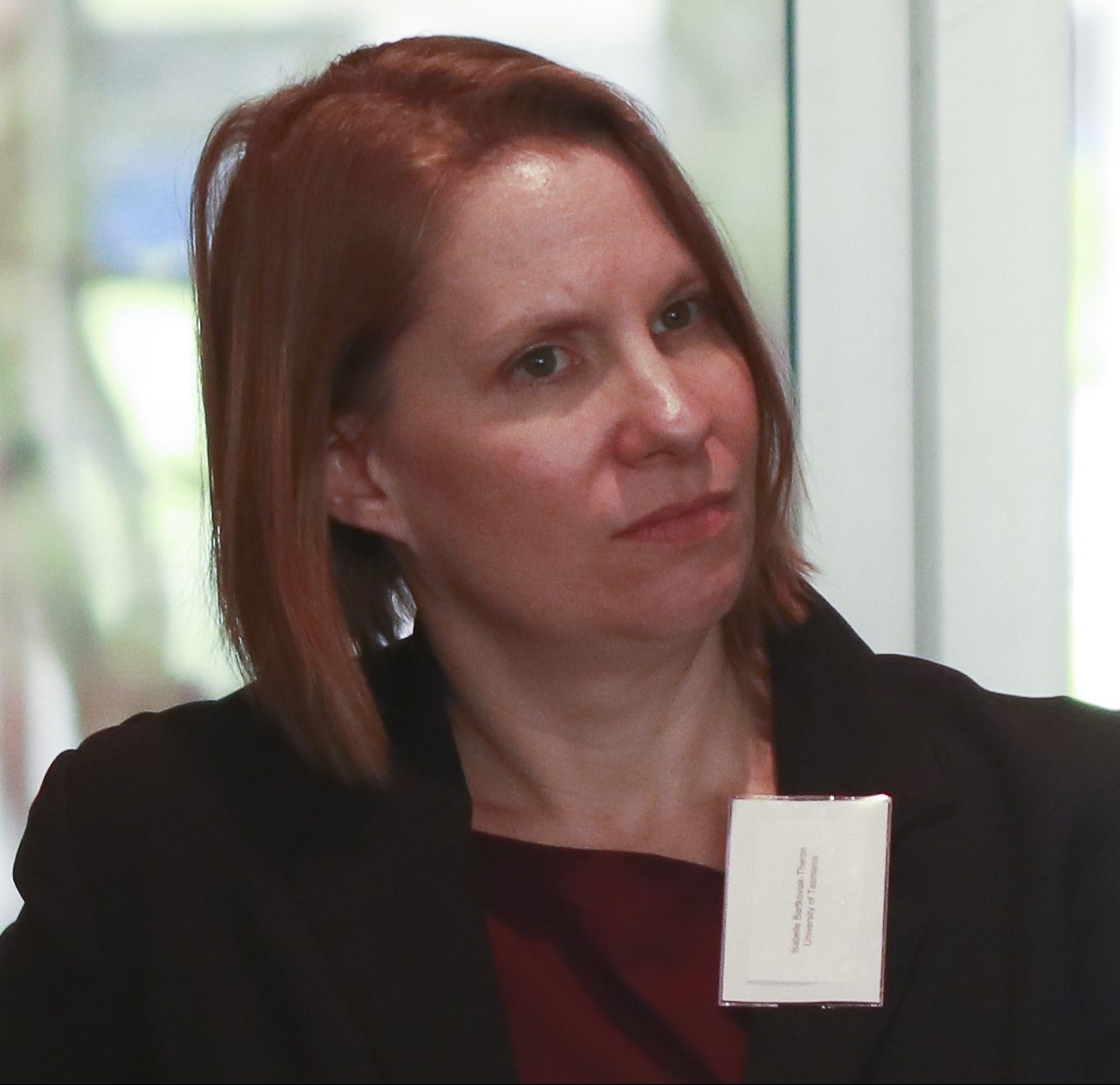 Isabelle Bartkowiak-Theron
Isabelle Bartkowiak-Theron
Senior Researcher, Tasmanian Institute of Law Enforcement Studies
Dr Isabelle Bartkowiak-Theron is the coordinator of Police Studies in the School of Social Sciences at the University of Tasmania, and a senior researcher at the Tasmanian Institute of Law Enforcement Studies (TILES). Isabelle specialises in the qualitative and quantitative study of policing and policing services targeting vulnerable populations (e.g., young people, refugees, Aboriginal community members) and is in regular contact with representatives of these vulnerable populations.
 Leo Beletsky
Leo Beletsky
Associate Professor, Law and Health Sciences, Northeastern University
Leo Beletsky, JD, MPH is an Associate Professor of Law and Health Sciences at Northeastern University. He is also on faculty at the Division of Global Public Health at the University of California, San Diego. Beletsky studies the public health impact of law and its law enforcement, with special focus on police practices as a driver of risk among people who use drugs and promoting police-public health collaboration through training and other interventions.
 Richard Bent
Richard Bent
Senior Research Associate, Institute for Canadian Urban Research Studies (ICURS), Simon Fraser University, British Columbia,
Richard has been a Senior Research Associate with the Institute for Canadian Urban Research Studies (ICURS), Simon Fraser University, British Columbia, since 2009. Prior to joining ICURS he served 35 years as a member of the Royal Canadian Mounted Police in a variety of diverse roles, and ended his career in the executive ranks of the RCMP.
Richard’s research interests include mental health calls for service, policing complexity, performance management for police organizations, national security, governance, and public policy pertaining to justice and policing issues.
Richard has developed strong ties with CEAMOS at the University of Chile and Griffith University, Brisbane, Australia.
 Michael Brown
Michael Brown
Mental Health Coordinator, College of Policing, UK
Michael is the Mental Health Coordinator at the College of Policing and a serving officer with West Midlands Police. He has worked on policing and mental health for over a decade and commanded a number of critical incidents involving those of us with mental health problems – including firearms incidents, sieges and multiple homicides. He drove the creation of seven ‘Place of Safety’ services, including one specifically for children, which have spared many thousands of people the indignity of being detained in custody. His use of social media under the moniker ‘MentalHealthCop’ to raise awareness of the role played by the police in our mental health system has been nationally and internationally award-winning and he was singled out for commendation by the Home Affairs Committee of the UK Parliament after giving evidence to their inquiry into policing and mental health. He has worked in South Africa, Namibia and Northern Ireland and has been a visiting lecturer in forensic mental health at Russell Group universities. He is a recipient of the President’s Medal from the Royal College of Psychiatrists for his “significant contribution to improving the lives of people with mental illness” and in 2016 was appointed an OBE in the 90thBirthday Honours for his services to policing and mental health.
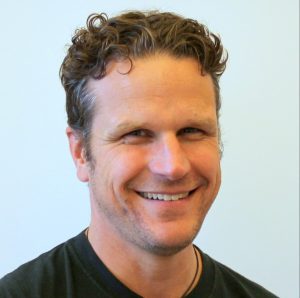 Jonas Hansson
Jonas Hansson
Senior Lecturer, Basic Training Program for Police Officers, Umeå University
Jonas Hansson holds a PhD in Public Health and is a Senior Lecturer at the Basic Training Program for Police Officers at Umeå University in Sweden. Jonas was previously a police officer (1993-2013), a field training officer and instructor in self-defence, weapon and tactics. He completed a Master of Education at Umeå University with a focus on police students’ perceptions of their learning environment.
Jonas completed his doctoral studies in September 2017, at the Department of Public Health and Clinical Medicine, Umeå University. The thesis focused on Swedish police officers’ mental health in the context of deportations of unaccompanied, asylum-seeking refugee children.
Jonas is the Research and Science Correspondent for Sweden in CEPOL, European Union Agency tor Law Enforcement Training. He is involved in future research projects with focus on two Swedish Police activities: a scientific evaluation of the use of electroshock weapons during 2018-2019, and a scientific collaboration in the Mareld initiative, which involves the police focusing its strength on the most deprived areas in order to re-establish safety.
 Inga Heyman
Inga Heyman
Lecturer, Mental Health and Adult Nursing, Edinburgh Napier University
Inga is a Lecturer in Mental Health and Adult Nursing at Edinburgh Napier University, Scotland, with research, teaching and clinical interest in the interface between health, policing and vulnerable groups. Prior to joining higher education she worked in health and police services in the UK and Australia for over 30 years with a focus on substance use in pregnancy, the commercial sex industry, suicide, self-harm, custody healthcare and public protection.
She has worked with the Scottish Government and Police Scotland in relation to policing and mental health responses. She is currently completing her doctoral studies focusing on the interface and pathways between police, those in mental health distress and emergency health services. She is a member of the Scottish Institute of Policing Research (SIPR) network with a particular focus on law enforcement and public health.
 Steve James
Steve James
Principal Fellow, School of Social and Political Sciences, The University of Melbourne
Steve James is a Principal Fellow at the School of Social and Political Sciences at the University of Melbourne. He obtained his PhD in Criminology from the University of Melbourne where he has researched and taught for 30 years. His research has been dominated by policing and law enforcement studies. With his colleague the late Adam Sutton, he completed the first national review of Australian drug law enforcement in 1996. From 2012 to 2014 he was a member of the Scientific Advisory Board for COREPOL: Conflict Resolution, Mediation and Restorative Justice and the Policing of Ethnic Minorities in Germany, Austria and Hungary, a European Union-funded comparative research program. He continues to be active in law enforcement studies, particularly at the intersection with public health.
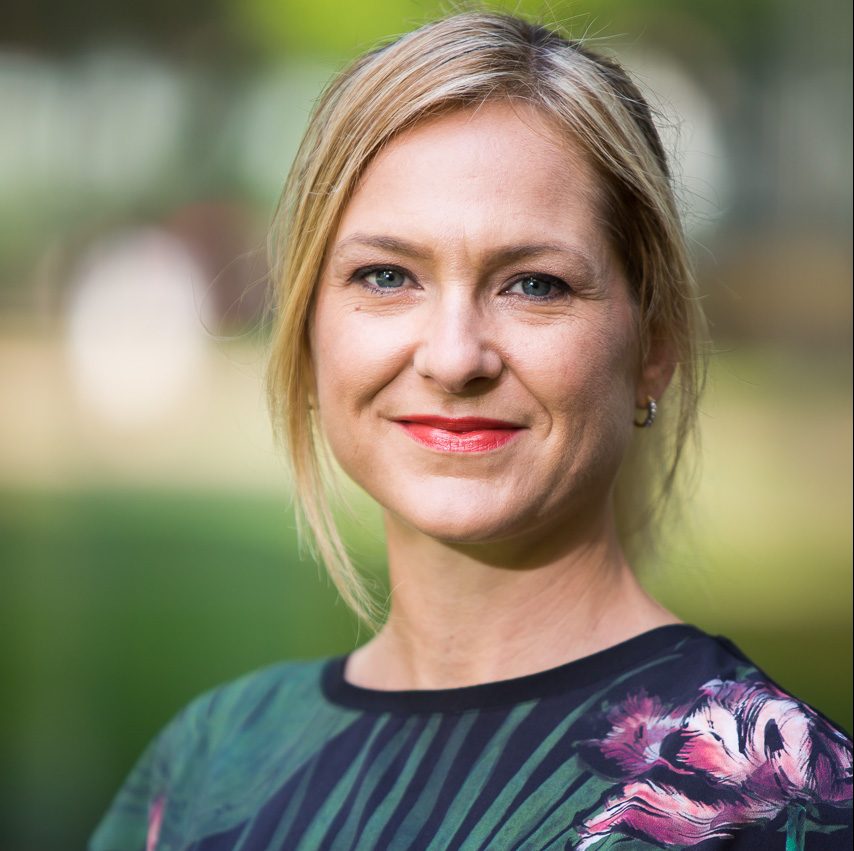 Melissa Jardine
Melissa Jardine
Director, Global Law Enforcement & Public Health Association
Melissa Jardine is a Director for the Global Law Enforcement & Public Health Association (gleapha.wildapricot.org). Melissa is also Gender Advisor & Communications Manager for the Centre for Law Enforcement & Public Health (www.cleph.com.au). She has written and delivered a range of international police training packages regarding HIV prevention, harm reduction approaches to drug use and sex work, and police-public health leadership. In 2017, Melissa was named an Asia 21 Young Leader by the Asia Society.
Melissa was a Victoria Police officer for 10 years (2001-2011) working at the frontline and in criminal investigations. She completed a Master of Asian Studies at Monash University with a focus on the relationship between provincial economic growth in China and capital punishment for economic crimes, and studied Counter-terrorism in ASEAN. She also has a Master of Philosophy from The University of Melbourne, examining police culture and police responses to the implementation of drug harm reduction programs in Hanoi, Vietnam. Melissa has long term interest in the development of policing in Asia and is currently researching policing in Vietnam for her PhD at UNSW. It includes a focus on how to expand the role of women in policing in Vietnam. Melissa was featured in the Victoria Police ‘Badge and Beyond’ Police Life magazine in Winter 2017.
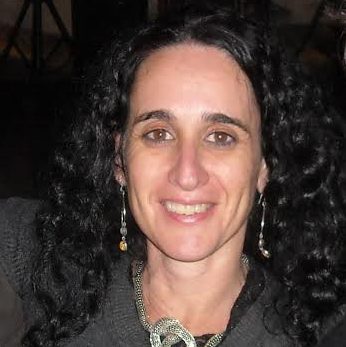 Monique Marks
Monique Marks
Durban University of Technology, South Africa
Prof. Monique Marks currently heads up the newly established Urban Futures Centre at the Durban University of Technology (UFC@DUT). Initially trained as a social worker, she has a doctorate in Sociology from the University of Natal, and writes predominantly in the field of criminology. She has published widely in the areas of youth social movements, ethnographic research methods, police labour relations, police organizational change and security governance. She has published four books: Young Warriors: Youth Identity, Politics and Violence in South Africa; Transforming the Robocops: Changing Police in South Africa; and Police Occupational Culture: New Debates and Directions (edited with Anne-Marie Singh and Megan O’Neill) and Police Reform from the Bottom Up (edited with David Sklansky). She has also published over 45 peer reviewed articles and numerous reports. She sits on a number of journal editorial boards as well as the Board of Trustees of the Safer South Africa Foundation. She is a B-rated researcher, indicating that she has substantial international recognition. In her research work on security governance she has forged close relations with government, both local and national. Monique also runs a large community engagement project in Durban’s largest low income municipal housing estate, Kenneth Gardens.
 Khuat Thi Hai Oanh
Khuat Thi Hai Oanh
Founder and Executive Director, Centre for Supporting Community Development Initiatives
Khuat Thi Hai Oanh is a medical doctor and the Founder and Executive Director of the Centre for Supporting Community Development Initiatives (SCDI), a Vietnamese NGO whose mission is to improve life of marginalized populations through community empowerment and creating enabling environment. SCDI serves sex workers, drug users, people living with HIV, their spouses and children as well as men who have sex with men and transgender people.
Oanh has been advocating for harm reduction and other effective, right-based treatment of drug users in Vietnam since 2003. She witnessed Vietnam legalizing harm reduction, and moving from mandatory rehabilitation to more voluntary treatment of drug users. In her other capacity, Oanh is the Chair of Vietnam Civil Society Partnership Platform on AIDS and Chair of Council of Representatives of the Asia Pacific Coalition of AIDS Service Organizations. In 2009, the World Economic Forum honored Oanh as a Young Global Leader. At the International AIDS Conference 2014, Oanh delivered a plenary presentation on harm reduction and drug policy. Oanh was selected as an Asia 21 Young Leader in 2011 by the Asia Society.
 Michael S. Scott
Michael S. Scott
Director, Center for Problem-Oriented Policing, and, Clinical Professor, School of Criminology & Criminal Justice, Arizona State University
Michael S. Scott is the director of the Center for Problem-Oriented Policing and clinical professor at Arizona State University’s School of Criminology & Criminal Justice. He was formerly clinical professor at the University of Wisconsin Law School; chief of police in Lauderhill, Florida; served in various civilian administrative positions in the St. Louis Metropolitan, Ft. Pierce, Florida, and New York City police departments; senior researcher at the Police Executive Research Forum (PERF); and a police officer in the Madison, Wisconsin, Police Department. He is the chairperson for the Herman Goldstein Award for Excellence in Problem-Oriented Policing. He was the 1996 recipient of PERF’s Gary P. Hayes Award for innovation and leadership in policing. Scott holds a law degree from Harvard Law School and a bachelor’s degree from the University of Wisconsin-Madison.
 Auke van Dijk
Auke van Dijk
Agora Police & Security, Dutch Police Service, Amsterdam, Netherlands
Auke van Dijk is advisor to the chief of the Amsterdam police and strategist at the think tank Agora Police & Security. He has an academic background in international relations theory and international political economy. He has been senior advisor at the Committee for Evaluation of Intelligence and Security Services and was a member of the Vision on Policing Committee (Council of Chief Police Commissioners) that delivered a new comprehensive strategy for future policing.
He is cofounder of the Agora Police & Security. The Agora is an experimental space for thinking and debate among practitioners and academics. The central aim is to enhance the organisation’s ability to think; more specifically to make sense of the societal context and its current or future consequences for day-to-day policing, and to question the way ‘things are done’ by and in the organisation. The Agora is an ‘intellectual playing ground’ and a ‘safe haven’ for the development of new ideas and for contradicting current insights and policy.
Recent themes in his work are: the common ground of law enforcement and public health, vulnerable groups, policing a diverse society, and values-based leadership.
 Jennifer Wood
Jennifer Wood
Associate Professor, Criminal Justice Department, Temple University, USA
Jennifer is an Associate Professor in the Criminal Justice Department at Temple University (Philadelphia). She received her doctorate in criminology at the University of Toronto. Prior to joining Temple, she served as a Fellow at the Regulatory Institutions Network (RegNet) at the Australian National University.
Jennifer is a criminologist with expertise in policing and regulation. Her work has explored how order and security is promoted by mixes of public and private entities including but well beyond the public police. Her co-authored book, Imagining Security(Willan, 2007; with Clifford Shearing), offers an account of ‘nodal governance’ as a means of explaining this plurality. She has published two co-edited books Democracy, Society and the Governance of Security (Cambridge, 2006; with Benoit Dupont) and Fighting Crime Together: The Challenges of Policing and Security Networks (University of New South Wales Press, 2006; with Jenny Fleming)). Jennifer is currently leading an action research project designed to strengthen connections between policing, security and public health entities in Center City, Philadelphia.
Jennifer is a Methods Core member of the National Program Office for Public Health Law Research funded by the Robert Wood Johnson Foundation and is the North American Regional Editor for Policing and Society: An International Journal of Research and Policy.

